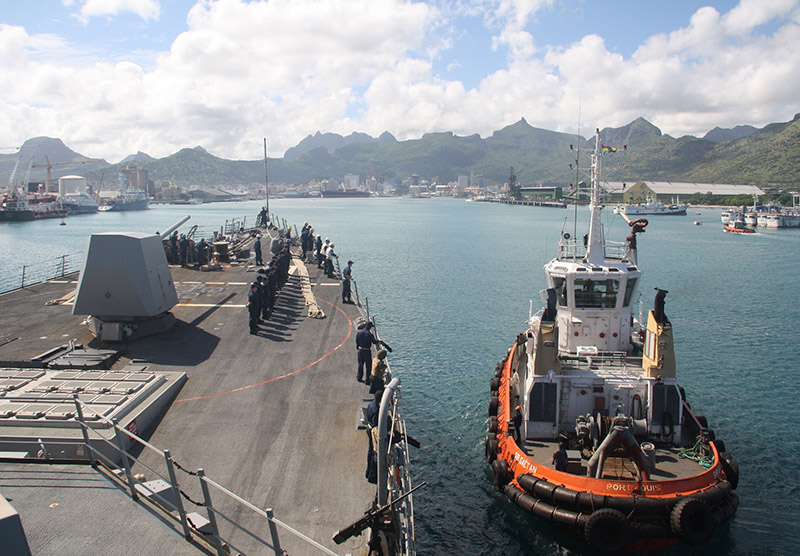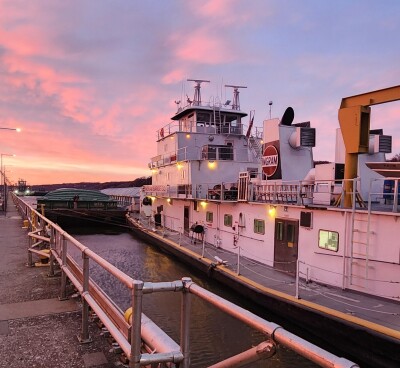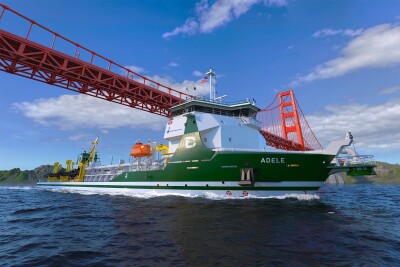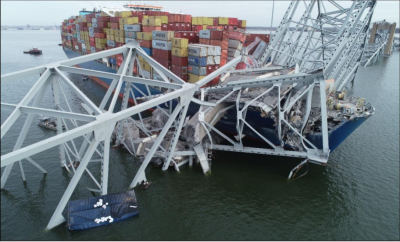I am traveling half way around the world, but I just can't escape the long reach of the U.S. Coast Guard.
My home for the moment is on the island of Mauritius, a small former French/British colonial outpost, deep in the southern Indian Ocean about 750 miles east of Madagascar. It was built around a maritime history (providing European ships a welcome spot to stop on the long journey around the Cape of Good Hope and on to Asia and India), and today still has a thriving port, which is becoming a hub for trade in this part of the world.
Under several trade agreements, Mauritius businesses export lots of things to America: sugar, textiles, clothing (jeans, T-shirts, polo shirts), monkeys for medical experiments, diamonds and canned tuna.
This is one of the key reasons that the U.S. Coast Guard was here in late November, observing port operations and suggesting ways to improve port security. The U.S. wants to make sure that ships carrying goods to U.S ports arrive in secure ships that have called at secure ports.

U.S. Coast Guard officials visit Port Louis, Mauritius, on Nov. 28, 2016. USCG photo.
A Coast Guard international port security team visited Mauritius under the auspices of the International Ship and Port Facility Security Code (ISPS). This code is the basis for a comprehensive mandatory security regime for international shipping that was created by the International Maritime Organization in response to the 9/11 terrorist attacks. Merchant ships and their ports of call are required to be certified to a certain security standard.
Mauritius and many other maritime countries are signatories to the agreement, and welcome U.S. Coast Guard assistance in assessing the effectiveness of their anti-terrorism and port security measures. This was the fifth Coast Guard port assessment in this thriving democracy that is about the size of Rhode Island.
"Every port stakeholder in every country has security responsibilities in our interconnected global economy," said Lt Cmdr. Darwin Kawamoto, liaison office at the Coast Guard Marine Detachment in Singapore. "The U.S. Coast Guard appreciates Mauritius' invitation and their commitment to improving port security."
Such assessments are only one aspect of the Coast Guard's intervention with Mauritius. Over the past few years, it has sent in teams to help the Mauritius National Coast Guard train in search-and-rescue techniques, and has donated patrol boats as well as an automated information system. The Coast Guard Academy has also made a space available for a cadet from Mauritius to attend. The government of India, which has close cultural and economic ties to the island, has built many of the boats in the Mauritius National Coast Guard fleet and also provides training.
Operations in foreign nations like the port security assessment in Mauritius is just one illustration of the many and varied missions of the Coast Guard that go far beyond traditional roles of search-and-rescue, fisheries and drug law enforcement and marine safety.
Since 9/11, the service's responsibilities have grown more complex and global, addressing a wide range of dynamic and changing threats that could disrupt international trade, environmental and ocean protection and world security.





